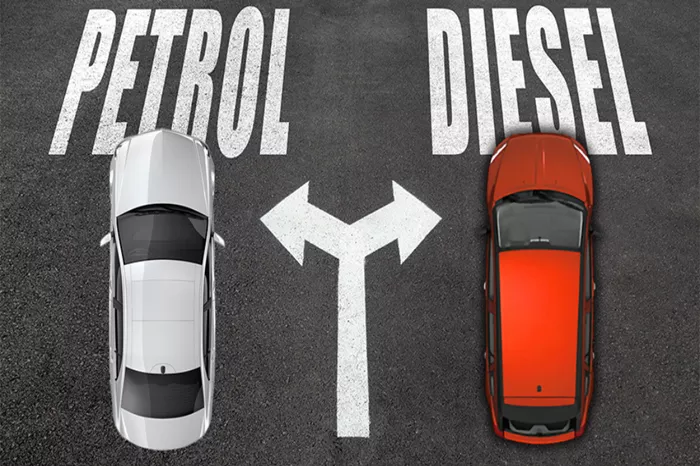Choosing between a gasoline and diesel car involves considering various factors, from fuel efficiency and power to noise levels and emissions. Each type of engine has its advantages and considerations, influencing the decision-making process for potential car buyers. This comprehensive article explores the key differences between gasoline and diesel cars, helping you make an informed choice based on your driving needs and preferences.
Fuel Efficiency:
One of the primary considerations when comparing gasoline and diesel cars is fuel efficiency:
Diesel Engines: Diesel engines are known for their higher energy density, meaning they provide more energy per gallon of fuel compared to gasoline engines. This higher energy content translates into better fuel economy, especially on highways where diesel engines can achieve impressive mileage figures. The efficiency of diesel engines is particularly beneficial for long-distance driving and towing applications.
Gasoline Engines: While gasoline engines have made significant strides in fuel efficiency over the years, they generally consume more fuel than diesel engines under similar driving conditions. Gasoline cars are often more efficient in city driving scenarios and lighter vehicles, but they may lag behind diesel counterparts on highways in terms of fuel economy.
Power and Torque:
Power and torque play a crucial role in the performance and drivability of vehicles:
Diesel Cars: Diesel engines are renowned for their high torque output, which is crucial for tasks such as towing heavy loads or accelerating from low speeds. The higher torque at lower RPMs allows diesel cars to provide better fuel economy and smoother acceleration, making them ideal for long-distance cruising and hauling.
Gasoline Cars: Gasoline engines typically produce less torque compared to diesel engines but may deliver more horsepower at higher RPMs. Gasoline cars often provide responsive acceleration and agility, which can be advantageous in city driving and sporty driving conditions.
Noise and Emissions:
Noise levels and emissions are significant factors to consider, especially in terms of environmental impact and cabin comfort:
Diesel Engines: Diesel engines tend to produce more noise compared to gasoline engines due to their higher compression ratios and combustion characteristics. While modern diesel engines have significantly reduced noise levels compared to older models, they are generally perceptible inside the cabin. In terms of emissions, diesel engines historically emit higher levels of nitrogen oxides (NOx), particulate matter, and carbon dioxide (CO2) compared to gasoline engines. However, advancements in diesel engine technology have led to cleaner diesel emissions with the introduction of ultra-low sulfur diesel (ULSD) and advanced exhaust after-treatment systems.
Gasoline Engines: Gasoline engines are typically quieter than diesel engines, offering a smoother and quieter driving experience. In terms of emissions, gasoline engines generally emit lower levels of NOx and particulate matter compared to diesel engines. However, gasoline engines may produce higher levels of CO2 emissions due to their lower efficiency compared to diesel engines.
See also: Diesel Vs Gasoline: Which Is Better For The Environment?
Maintenance and Longevity:
Maintenance costs and engine longevity are critical considerations for car owners:
Diesel Engines: Diesel engines are known for their robust construction and durability, often requiring less frequent maintenance intervals compared to gasoline engines. The higher torque and lower RPM operation also contribute to reduced wear and tear on engine components over time. However, diesel engines may require specialized maintenance, such as diesel particulate filter (DPF) regeneration and selective catalytic reduction (SCR) system maintenance for emissions compliance.
Gasoline Engines: Gasoline engines generally have lower initial purchase costs and maintenance expenses compared to diesel engines. Routine maintenance tasks such as oil changes and spark plug replacements are straightforward and less costly. However, gasoline engines may require more frequent maintenance due to higher RPM operation and combustion characteristics.
Environmental Impact:
Environmental considerations are increasingly important in vehicle selection:
Diesel Engines: Historically, diesel engines have faced scrutiny due to higher emissions of NOx and particulate matter. However, modern diesel engines equipped with advanced emissions control technologies have significantly reduced these emissions. Ultra-low sulfur diesel (ULSD) fuel and diesel particulate filters (DPF) are examples of advancements aimed at reducing the environmental impact of diesel vehicles.
Gasoline Engines: Gasoline engines generally emit lower levels of NOx and particulate matter compared to diesel engines. However, gasoline engines contribute to CO2 emissions, which are a significant contributor to greenhouse gas emissions and climate change. Advances in gasoline engine technology, such as direct injection and turbocharging, have improved efficiency and reduced emissions over time.
Technology and Innovation:
Technological advancements continue to shape the performance and efficiency of both gasoline and diesel engines:
Diesel Engine Innovations: Recent innovations in diesel engine technology focus on improving efficiency, reducing emissions, and enhancing performance. Advanced fuel injection systems, exhaust gas recirculation (EGR), and selective catalytic reduction (SCR) systems are examples of technologies aimed at meeting stringent emissions regulations while optimizing fuel economy.
Gasoline Engine Innovations: Gasoline engines have benefited from advancements in turbocharging, direct fuel injection, and variable valve timing. These technologies enhance power output, improve fuel efficiency, and reduce emissions without compromising performance.
Conclusion
In conclusion, the decision between a gasoline and diesel car hinges on your specific driving needs, preferences, and environmental considerations. Diesel cars offer superior fuel economy, high torque for towing, and long-term durability but may have higher emissions and initial costs. Gasoline cars provide smooth acceleration, lower noise levels, and lower emissions of NOx and particulate matter but may consume more fuel overall.
Before making a decision, consider factors such as your typical driving conditions (highway vs. city), anticipated mileage, towing requirements, and budget constraints. Consult with automotive experts and review manufacturer specifications to determine which type of engine aligns best with your lifestyle and values. Whether you choose a diesel or gasoline car, prioritize regular maintenance and responsible driving practices to maximize performance, efficiency, and longevity of your vehicle.
Related topics:

